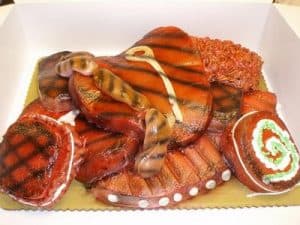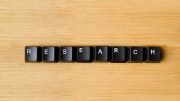When you do partake, moderation is key to avoiding gluttony.
Cake, whether white, yellow, or chocolate, is one of the most tempting foods man is ever created. For example, a simple recipe for white cake contains the perfect mixture of sugar, butter, eggs, vanilla, flour, baking soda, and milk. Such a simple recipe delivers perfect soft spongy delight that when mixed with sweet, creamy icing, it is impossible to resist.
I can remember as a child smelling that intoxicating smell of a yellow or white cake baking in the oven. It was almost heaven sent. The problem with cake is that it contains an awful lot of processed sugar and flour which is nearly 100% easily digested and absorbed carbohydrates. These carbohydrates flood your bloodstream with sugar or glucose. I can remember one instructor in college that informed me that the fat and the icing slow down the absorption of the sugar. I would argue that this slowing of absorption is not significant. This glucose load is why a piece of cake is the enemy of a slim waistline.
In researching for this article, I found one website that jokingly made the statement that cake could help with weight loss. In one blog titled Cake Wrecks, the blog author used cake designs that certainly questionable to illustrate that not everything is appetizing. Some cakes are very appealing, but a cake that looks like a turkey drumstick, various meats and sausages, insects, bodily excretions, or organs probably do not appear appetizing.
Can you have cake and still lose weight? I have seen diets that recommend that you eat whatever you’re craving. I’ve even seen diets that recommend eating cake for breakfast as a means to lose weight. I can tell you that both of these would likely be unsuccessful. The truth is you can eat cake and still lose weight. The key is portion control. If you cannot control your portions, though, you should not eat cake because a cake is high in sugar and is very dense in calories. As I have said in other articles, not all calories are the same, and the sources of calories in a cake are of low quality and high in processed sugars and fats.
The key to reducing your chances of overeating cake is to keep yourself full. Consuming plenty of fresh fruits and non-starchy vegetables will help. These have a lower energy density which means they have few calories and slow down digestion. Slower digestion will keep you feel full longer and prevent the temptation to devour a huge piece of cake. If you are full and satisfied when you hit that party at work, you will be more able to avoid the temptation.
When you do partake in a piece of cake, the key is moderation. Eat a small piece of cake slowly. Drink a glass of water
with it to slow your intake. You will be surprised how taking a drink of water between each bite of cake and slow the intake and make the small piece of cake more fulfilling. So how much cake is enough? I would limit your intake to the size of a deck of cards or smaller. A small to medium cupcake is also a good measure of how much to eat, but be careful icing is very dense in calories.
The bottom line: You can have cake, but don’t binge or overeat when it comes to cake. Indulge yourself, but do not overboard. It is possible to enjoy the sweet things in life and still lose weight. Unfortunately, you can’t just lay around and eat cake all day and still lose weight.









Be the first to comment on "Editorial: Cake is the Devil’s Food"